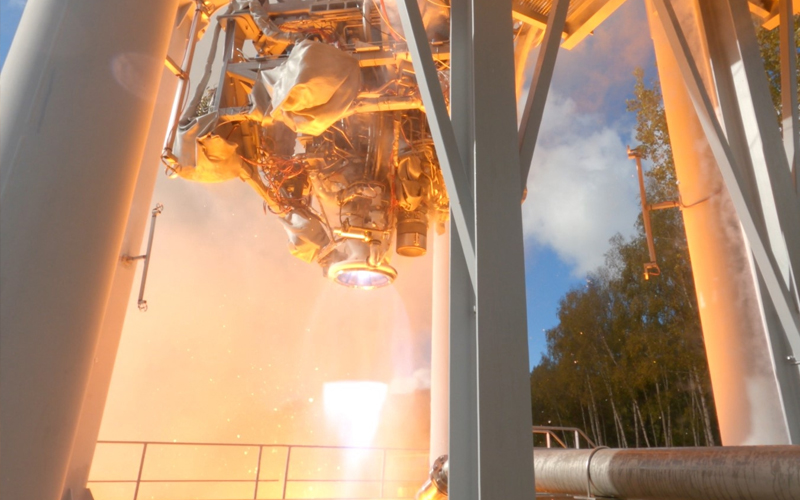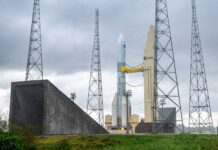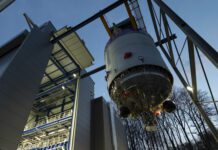
ArianeGroup announced last week that it had completed a test campaign of a Prometheus engine prototype that included a 30-second hot fire test.
Prometheus began as a CNES project in 2015, with the agency projecting that a full-scale demonstrator of the engine would be ready for a hot fire test in 2020. The engine was intended to be a low-cost reusable methalox rocket engine that would produce 1,000 kN of thrust and power the next generation of European launch vehicles. The aim was to get to a point where Prometheus engines could be produced for no more than €1 million per unit.
At the ESA ministerial level council meeting in Lucerne in late 2016, Prometheus was officially adopted by ESA under its Future Launcher Preparatory Programme. To date, the project has received more than €180 million in funding from ESA and the European Commission.
ArianeGroup completed the first hot fire ignition of a Prometheus engine in June 2023, which included a 12-second firing. The test was conducted at the company’s facility in Vernon, France.
This latest announcement revealed that ArianeGroup completed a 30-second test firing and a re-ignition of the engine on 20 October. The engine being used for testing, however, was only an “early prototype.”
According to ESA, Prometheus testing will “accelerate” with the delivery of two new Prometheus prototypes. One of the two prototypes will be installed onto a test bed at the DLR test facility in Lampoldshausen, Germany. Testing of this prototype will begin next year.
The last European institutional rocket engine developed from scratch was Vulcain. Development of the engine began in 1985, and the first hot fire test was conducted in 1990. The first flight test of the engine was conducted aboard an Ariane 5 in 1996. While this first flight did end in failure, the cause was not the Vulcain engine.
When compared to Vulcain, the development of Prometheus appears to be taking significantly longer, with an initial test firing occurring eight years after work on the programme began, which is three more years than with its predecessor. Although a Prometheus engine is expected to fly aboard a Themis demonstrator next year, an initial orbital flight of the engine will not occur until late 2025 at the earliest aboard a Maiaspace microlauncher.







